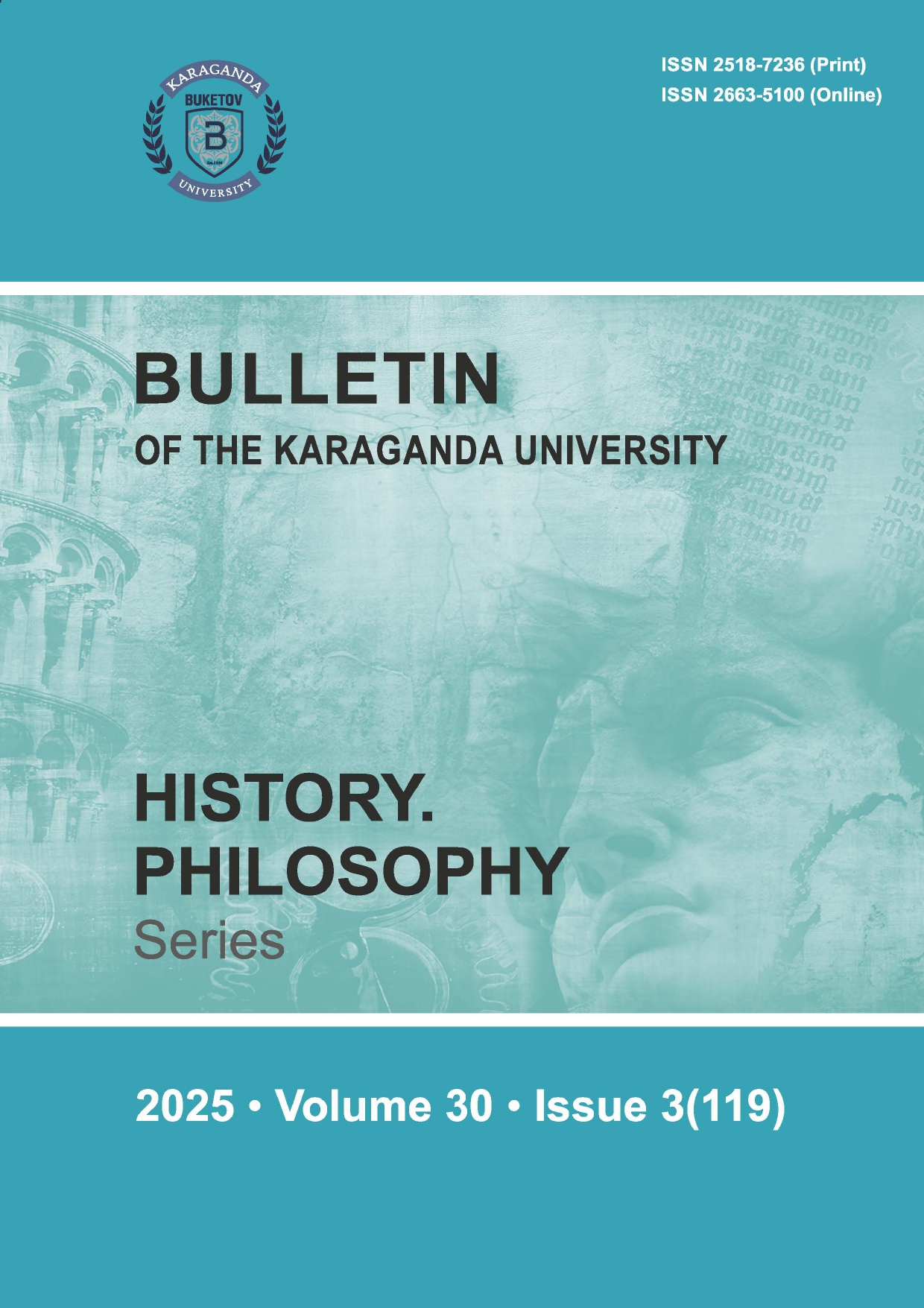History of Relations between the USA and Egypt in the 50s of the XX Century
DOI:
https://doi.org/10.31489/2025hph3/81-91Keywords:
World History, USA, Middle East, Egypt, Suez Canal, Middle East Command, geopolitics, historical development, ideology, history of foreign policy, military strategyAbstract
This article provides a comprehensive analysis of the history of United States policy toward Egypt. Particular attention is given to the nature of bilateral relations within the broader context of the geopolitical transformation of the Middle East in the postwar period. Within this historical framework, American strategy in the region is defined by its pursuit of control over energy resources, while Egypt’s role is interpreted through the lens of its geoeconomic and geostrategic position, largely shaped by the significance of the Suez Canal. Due to its advantageous geographical location and its increasing political activism in the Arab world during the postwar years, Egypt came to be viewed in Washington as a key strategic partner in the Middle Eastern regional security system. In this context, the United States and its principal Western allies undertook efforts to integrate Egypt into the structures of collective security — particularly through the “Middle East Command” project, which had a pronounced anti-communist orientation. The article examines both the institutional and politico-strategic dimensions of this initiative, as well as the response of the Egyptian
leadership to these developments. It analyzes the nature of the geopolitical rivalry between the United States and the Soviet Union for influence in the Middle East, which emerged as a result of the Yalta-Potsdam postwar international system. Specific actions taken by the U.S. to strengthen its military-strategic position in the region are explored in detail. The study draws upon archival materials from the Ministry of Foreign Affairs of the Russian Federation, including official documents related to the Egyptian dimension of U.S.
foreign policy




